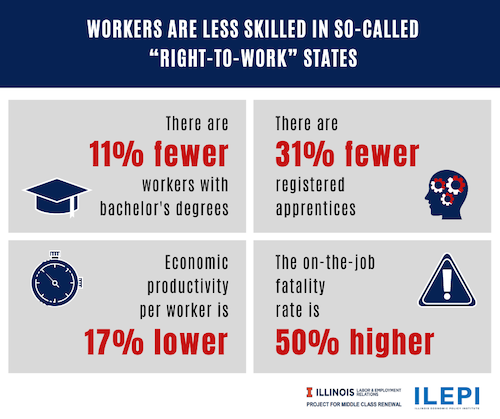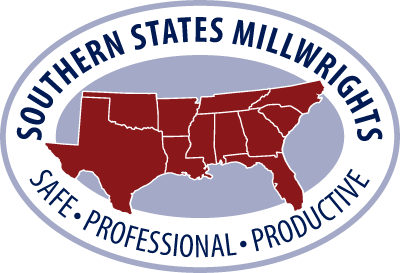
During an eight-year period of national economic expansion following the recession of 2008, the 27 U.S. states with so-called “right-to-work” laws experienced slower economic growth, lower wages, higher consumer debt, worse health outcomes, and lower levels of civic participation than states without those laws, according to a study released last year by the Illinois Economic Policy Institute and the Project for Middle Class Renewal at the University of Illinois at Urbana-Champaign.
“For years, anti-union zealots have presented so-called ‘right-to-work’ laws as a panacea to growing the economy,” said study co-author Frank Manzo IV. “Yet surveys of CEOs say ‘right-to-work’ has little effect on business relocation decisions, and the data shows that so-called ‘right-to-work’ states are performing substantially worse than their peers on wages, growth, poverty, and other core economic outcomes.”
Falsely named “right-to-work” laws prohibit clauses in union contracts that require all workers covered by the contract to share the costs of collective bargaining. “Right-to-work” laws force unions to provide their services for free, substantially limiting the resources these organizations need to organize, negotiate, and advocate on behalf of workers.
Learn more about the study here.
